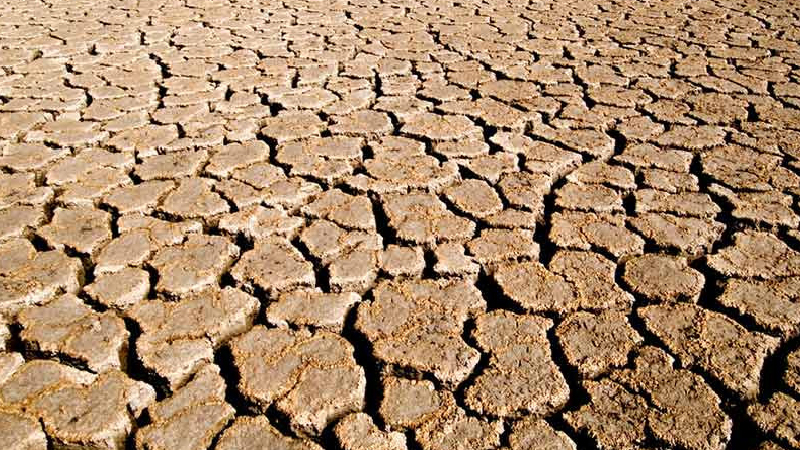Tamil Nadu Droughts – A Gloom That Needs Light!

“I’ll never want my daughter or any of my children to become a farmer”, said the wife of Murugan, a farmer who committed suicide in Tamil Nadu’s Nagapattinam district in a TV show. Nagapattinam, along with Thanjavur and Thiruvarur are the worst drought-hit districts in the state. Ironically, Thanjavur, which also happens to be my home district, is where the heart of the river Kaveri lies. Across our lives in school and university, we’ve been taught that India is an agrarian economy and that 60% of our population or even more than that depend on agriculture for their livelihood. Then why is it that consecutive governments have failed to save our farmers consistently?
140 farmers in Tamil Nadu took their lives in 2016 alone. Southern India, especially Tamil Nadu, Andhra Pradesh & Karnataka have been drought prone for years now. I remember this one painful instance very vividly. I was travelling by road on a bridge. Underneath ideally there should have been gushing & mighty waters of river Kaveri. But all that was there, in reality, was a puddle of water and a dry, lifeless river bed. Unpredictable monsoons, either a dry spell or flooding has been a reason for trouble for farmers across the country. P. Sainath, a Ramon Magsaysay awardee, and a rural journalist has been documenting farmer suicides and the reasons behind them for years. Even farmers who have been recognized as progressive farmers by state & central governments have taken their lives and left families behind in Andhra Pradesh, Tamil Nadu, and Maharashtra. Monsoons alone aren’t the reason.
Finance and debt waivers have an even bigger role and are even vicious when it comes to farmer deaths. Farmers not being spared for repaying their debts, the role of the unorganized sector meaning local money lenders who have no regulation whatsoever on the interest rates they charge, inefficiency with reference to policies trickling down to masses and either an absence or lack of banking habits and provisions which ideally are made to support farmers. When millionaires and billionaires who have embezzled money can be given time and waivers, why not farmers?
Claims the leader of the Nagapattinam Delta Farmers Union on the same television show that, “Government subsidies abroad are more direct in nature. They reach the farmers with no middle man. But Indian government subsidies involve middlemen to a very great extent which hampers the benefit that reaches the farmer, finally”. Nagapattinam was also one of the districts hit worse by the Tsunami in 2004.
I began writing this as an attempt to cover the droughts of Tamil Nadu. But all one realizes is that there is one common ground existing across states be it Maharashtra or Tamil Nadu. Natural conditions are beyond our strength. But government laxity and more importantly supremely irresponsible behavior of the people in power with reference to providing assistance to slain families are very common, unfortunately. Instead of acknowledging the fact that a subsidy or a waiver could have saved a farmer’s life, people go on to state “personal concerns being the reason”. All in all, India’s agriculture and our farmers are at their best phases and are booming, according to our government.
This may represent my fury but it is very crucial. Tamil Nadu’s drought comes at a time when lakhs of people are on the streets protesting for Jallikattu. Why hasn’t even one cultural activist in this crowd spoken for our farmers? Betraying a farmer, a man who feeds your house, who is the reason for your very sustenance, according to me, is nothing less than a crime or sin. Rich farmers or farmers who have the resources to support their family across seasons of low harvest, survive. But for those who have consistently encountered difficulties in harvest, gathering a good price for their harvest, struggling with finances, dealing with money lenders’ threats, reel and succumb under brutal pressure. Unfortunately, the latter is more than the former.
Ever thought this way, while you and I celebrated Pongal and Lohri, there were houses right behind the tall shoots of sugarcanes which were dim, dark & carried no signs of festivity? Pongal & Lohri missed visiting these families & houses for a very long time. To put it in more hitting words, we robbed all their chances of celebrations. The only mistake of theirs was to become a farmer in a land which was thankless of their service and indifferent to their woes.





